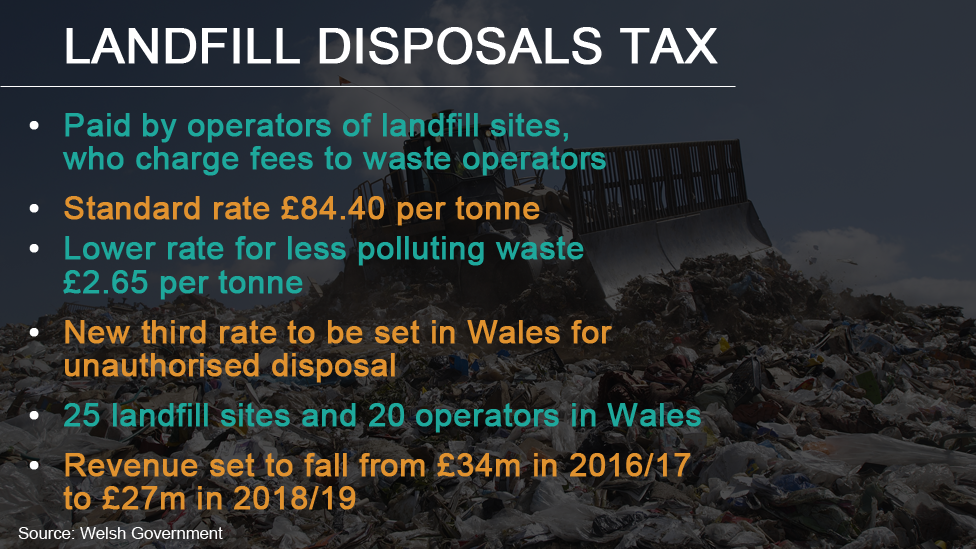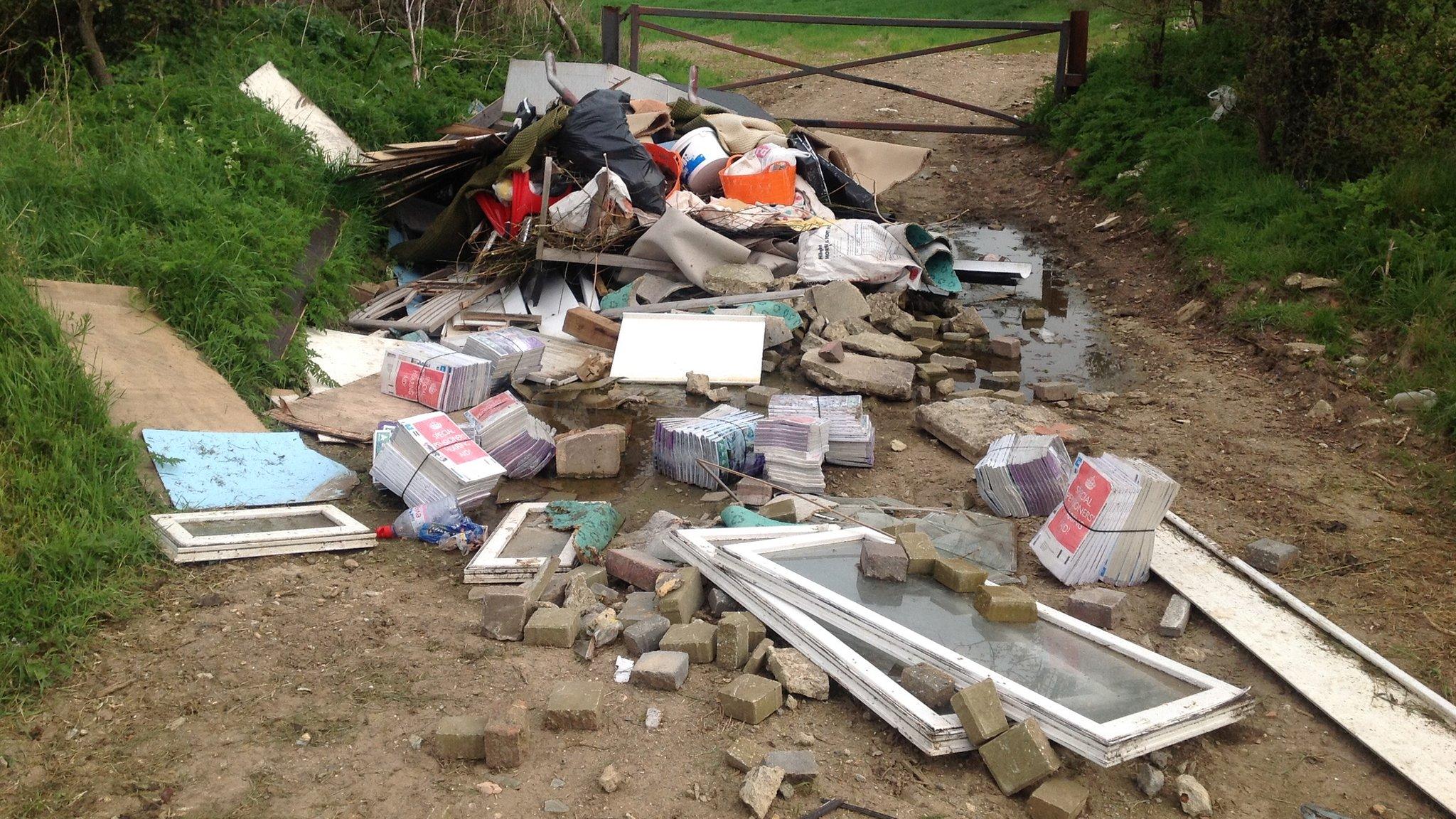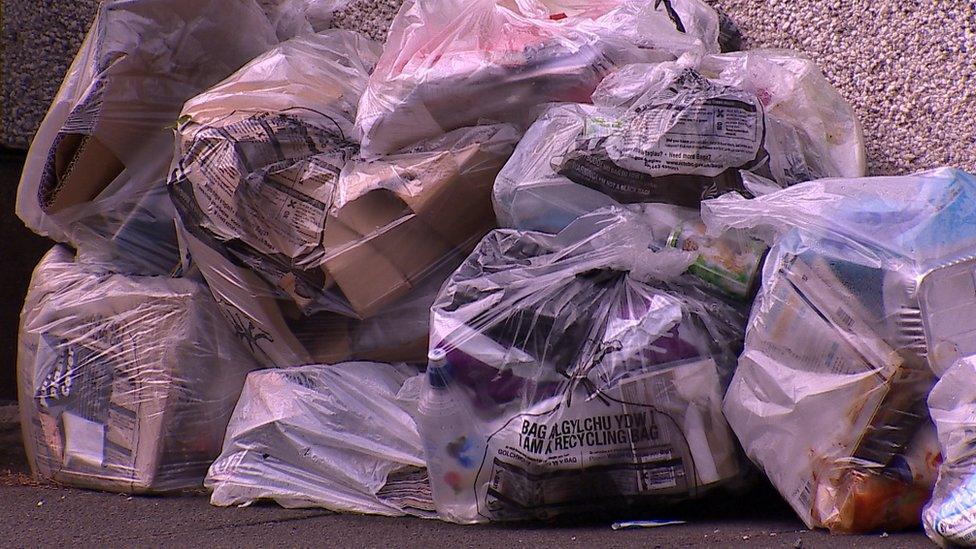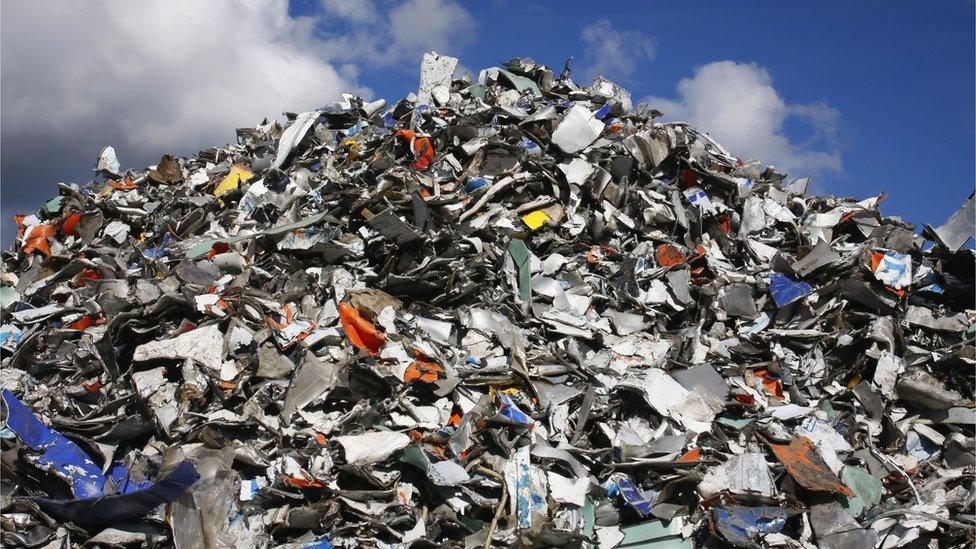Fly-tipping to be taxed under Landfill Disposals law
- Published
Mark Drakeford says the aim is to capture large scale fly-tippers
Fly-tippers who are caught dumping waste could face being taxed under a new law coming into effect in 2018.
The plan is included in the Landfill Disposals Tax, external Bill being introduced in the assembly.
Fly-tippers can already be fined and prosecuted, but could also face a tax on what they dumped on top of those existing penalties.
Finance Secretary Mark Drakeford said the tax was part of efforts to achieve the goal of a zero-waste Wales.
The new Landfill Disposals Tax will replace landfill tax in Wales from April 2018 when the power is devolved from Westminster.
'Waste tourism'
Landfill tax is currently charged on disposals of waste at authorised landfill sites.
But the plan to tax unauthorised dumping of waste is the one big change from the law as it currently stands.
This would cover both disposal at larger scale unauthorised sites and fly-tipping.
Both are currently illegal and anyone caught doing it, or allowing it, on a large scale would be subject to fines plus the new tax, which will be charged retrospectively.
Welsh Government are still looking at how it would be policed and what sort of steps would need to be taken to enforce payment of the tax.
They are understood to view the new tax as a deterrent to dissuade people from dumping illegally in the first place rather than as a revenue-raising scheme.

Apart from taxing the unauthorised dumping of rubbish, the new Welsh law is unlikely to differ much from the current state of affairs in England.
But Welsh Government officials say it makes legal and political sense for the assembly to control landfill tax because waste policy is already devolved.
The rates of tax are likely to be the same as those in England with the Welsh Government keen to avoid so-called "waste tourism".
The concern is that operators would travel between England and Wales to dump rubbish where lower taxes made landfill site charges cheaper.
'Up to date and relevant'
Welsh officials are working with the UK Treasury to ensure that lower tax revenues from landfill are taken into account when the Welsh Government's block grant is calculated.
The tax is expected to raise £34m in Wales in 2016-17, but fall to £27m by 2018-19 due to increased rates of recycling.
The amount of landfill has gone down by 44% in Wales over the past 10 years, a steeper decline than the rest of the UK.
When the new law comes into force, landfill site operators will have to register with the Welsh Revenue Authority - the new tax collecting authority - and have a duty to file tax returns to the WRA.
Mr Drakeford said: "We have worked closely with stakeholders in developing this Bill.
"It is simple and clear to apply; reflects established practices; is up to date and relevant to Wales."
Ministers have the ability to consult on criminal powers under the Tax Management Collection Act, external, which came into force in April.
Natural Resources Wales will be involved in the collection of the landfill disposals tax, the Welsh Government said in 2015, when it unveiled plans for the WRA.
Welsh Conservative environment spokesman David Melding said: "The Welsh Government must ensure that this new law is implemented much more effectively than existing legislation and it is vital that local authorities feel equipped and resourced to tackle the blight of environmental crime."
- Published19 September 2016

- Published22 November 2016

- Published8 March 2016

- Published21 January 2016

- Published30 June 2015
